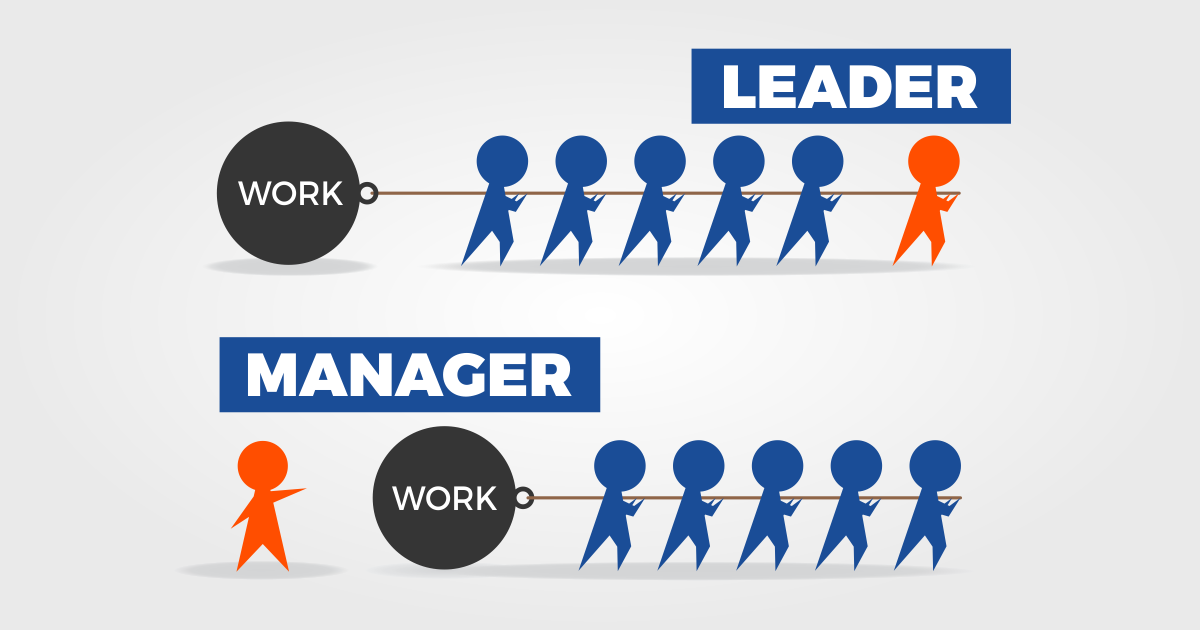For Students
Leadership vs. Management: Unraveling the Distinctive Roles and Approaches
Admin Jul 29, 2023 03:50 PM

TAGS
In the world of business and organizational dynamics, the terms "leadership" and "management" are often used interchangeably, leading to misconceptions about their roles. While both concepts are essential for effective organizational functioning, they represent distinct approaches and skill sets. This blog explores the differences between leadership and management, shedding light on their unique characteristics, responsibilities, and impact on organizational success.
Part 1- Defining Leadership:
Leadership is the process of inspiring, guiding, and influencing others to work towards a shared vision or common goal. Leaders set a compelling direction, motivate their team members, and foster an environment of innovation and creativity. They focus on the long-term perspective and are adept at recognizing opportunities and embracing change.
a) Characteristics of a Leader: Leaders possess visionary thinking, emotional intelligence, and a strong sense of purpose. They lead by example, inspiring their team members to follow them voluntarily. Leaders exhibit empathy, are open to feedback, and encourage growth and development in their subordinates.
b) Primary Focus: Leaders concentrate on the big picture, guiding the organization towards its mission and vision. They focus on building a strong organizational culture and establishing values that align with the organization's purpose.
c) Approach to People: Leaders prioritize people and focus on empowering and developing their team members. They create an inclusive and supportive work environment that fosters collaboration and unleashes the full potential of their employees.
d) Impact on Change: Leaders are change agents who embrace innovation and encourage their team members to adapt to new challenges and opportunities. They embrace uncertainty and navigate through it with resilience and determination.
Part 2- Defining Management:
Management, on the other hand, involves the coordination and organization of resources, processes, and tasks to achieve specific objectives. Managers are responsible for planning, organizing, and controlling resources to ensure that the organization's goals are met efficiently and effectively.
a) Characteristics of a Manager: Managers excel in organization, planning, and problem-solving. They are task-oriented and skilled in time management and resource allocation. Managers are results-driven and focus on achieving short-term objectives and meeting deadlines.
b) Primary Focus: Managers concentrate on executing plans, optimizing processes, and meeting established targets. They are responsible for operational efficiency and often work within existing structures and systems.
c) Approach to People: Managers are concerned with supervising and directing employees to ensure that tasks are completed on time and according to set standards. They focus on maintaining discipline and enforcing policies and procedures.
d) Impact on Change: Managers are implementers of change, focusing on ensuring that new processes or procedures are followed and that performance remains consistent. They tend to be more cautious and risk-averse when dealing with change.
In summary, leadership and management are two distinct yet complementary roles within an organization. Leadership emphasizes inspiring and guiding others towards a shared vision, while management centers around coordinating resources and tasks to achieve specific objectives efficiently. Effective organizations require both strong leaders who can set a compelling direction and motivate their teams and skilled managers who can efficiently execute plans and maintain operational efficiency.
Leadership and management are not mutually exclusive; many individuals possess qualities of both leadership and management. Effective leaders understand the importance of efficient management, and effective managers recognize the significance of inspirational leadership. Balancing the two approaches is crucial for achieving sustainable success and creating a thriving organizational culture that nurtures both the growth of individuals and the achievement of organizational goals. Embracing the distinctions between leadership and management allows organizations to leverage the strengths of both roles and create a harmonious and high-performing work environment.
Search
Latest Blogs

Exploring Opportunities in Emerging Engineering field
Admin
Dec 14, 2024 05:18 PM

Navigating College Majors
Admin
Sep 25, 2024 04:04 PM

Tools for Measuring Strengths For Career
Admin
Sep 25, 2024 03:27 PM
Interested in getting latest updates?
SUBSCRIBE


















